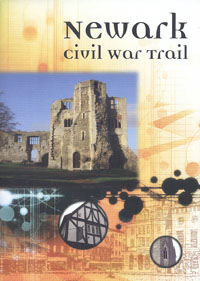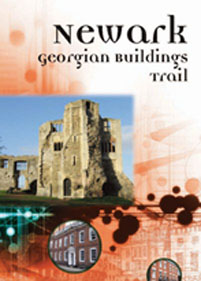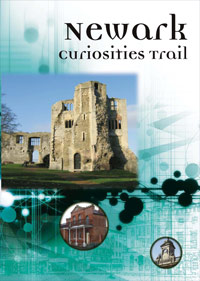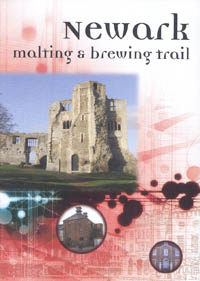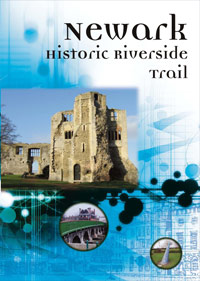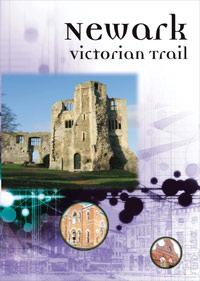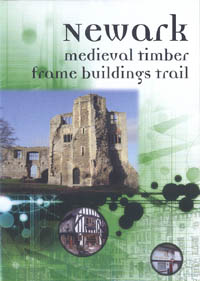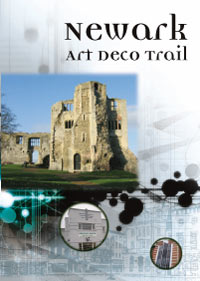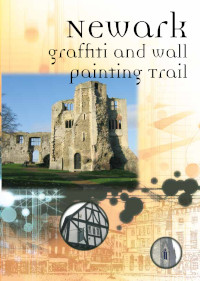Town Trails
These leaflets are produced by Newark Civic Trust with support from the Newark Town Partnership and other local organisations. The routes all begin in the grounds of Newark Castle close to the Gilstrap Centre.
The Visitor Information Centre is now situated at the National Civil War Centre/Palace Theatre on Appletongate.
Copies of the leaflets may be obtained from the Visitor Information Centre, as well as the Library, Town Hall and Ann et Vin shop. To view one of the leaflets, simply click on the relevant cover.
NB The location of the Tourist Information Centre is NOT as marked on the maps and Millgate Museum has now closed. Future revisions of the Trail leaflets will reflect these and other changes in the town.
New Trails
Please see our Curiosities trail, Victorian trail and Georgian Buildings trail on this page.
Newark was an important Royalist stronghold during the Civil War because of its strategic position. This short walk around the town centre takes in many of the sites and buildings that relate to the period.
Newark’s streets are lined with buildings from many historic periods but the town is famous for being ‘Georgian’. The route of this walk includes a range of fine Georgian buildings.
This Trail features some of the more unusual points of interest to be found around the town which are often passed unnoticed. Each has its own unique story to tell and each its own history.
Newark once produced vast amounts of malted barley for use locally in brewing and for export. This route takes in many of the sites and buildings that still stand as testament to the period when the town became known as ‘The Metropolis of Malt’.
The river Trent has played an important part in Newark’s story since before the town was founded. This walk passes many of the important and interesting riverside sites and buildings.
The Victorian age saw an industrial expansion in the town, particularly with the arrival of the railway and the development of a broad spectrum of buildings both commercial and social to meet the needs of a growing population.
Newark has more medieval timber frame buildings for its size than any town in Nottinghamshire and some of them are of national importance. This route takes you past many of the most interesting.
Art Deco was very popular in the 1920s and 30s and in Newark’s streets, examples of the style can be seen alongside medieval, Georgian and Victorian buildings.
Newark contains many fascinating examples of graffiti and wall paintings that can be found in buildings throughout the town including the church, castle and some of our oldest pubs.

